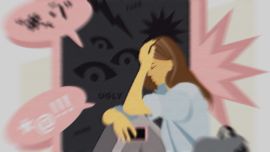President Alberto Fernández hinted at potential departures from the Mercosur trade bloc on Wednesday, as he clashed with leaders from fellow member nations during an ill-tempered summit marking the 30th anniversary of the bloc’s founding.
The Peronist leader sent a pointed message to his Uruguayan counterpart Luis Lacalle Pou at the end of the summit, after waiting his turn to speak, implying that nations should leave the regional trade bloc if they no longer wish to be a part of it. It was unclear if he was implying Argentina would leave the bloc, or if he believes other members should leave if they restricted from it.
The tense atmosphere arose after Lacalle Pou defended that member countries should have more flexibility to cut their own trade deals. Uruguay, frustrated with the slow pace of negotiations with other blocs and nations, won’t tolerate a Mercosur that acts like a “corset” when it comes to such agreements, the president said at the summit on Friday.
“If we’re a burden, take another boat,” Fernandez responded later in his own speech.
Confrontation
Brazil, Uruguay and Paraguay all lined up to confront Fernández, demanding greater flexibility to negotiate trade agreements during the tense summit, organised by the Buenos Aires interim presidency to commemorate the 30th anniversary of the regional trade bloc.
Fernández, who was last to speak, was clearly annoyed by the criticism from other leaders at the virtual summit (a consequence of the Covid-19 pandemic).
"If we’ve become a burden for anybody, I’m sorry, the truth is we never wanted to be a burden for anybody. A burden is something which you throw off the ship and it’s easier to get off the boat if you weigh too much. Let’s cut out those ideas which help so little towards unity. We don’t want to be a burden for anybody and if we are, take another boat. We’re not a burden to anybody, it’s an honour to form part of Mercosur," he said.
The Peronist leader was reacting after his colleagues – Brazil’s Jair Bolsonaro (who disappeared for a while in the middle of the ceremony), Uruguay’s Luis Lacalle Pou and Paraguay’s Mario Abdo Benítez with Chile’s Sebastián Piñera and Bolivia’s Luis Arce on the sidelines – requested more "flexible" bloc norms to enable agreements to be negotiated with countries beyond Mercosur without requiring the authorisation of the other partners (something which Uruguay and Paraguay have been proposing for over a decade), as well as revising the common external tariff.
"We do not believe that the linear reduction of the common external tariff is the best instrument. Argentina proposes preserving the balance between agricultural and industrial sectors with social justice in a global context of absolute uncertainty," said Fernández, who presides over Mercosur for the first six months of this year.
Bolsonaro was uncompromising: "Brazil wishes to count on the support (of its partners) to continue broadening the network of its international trade negotiations by updating the common external tariff. We need to attract investments, urgently overcoming the huge damage caused by the pandemic."
Lacalle Pou backed this idea and went further. The Uruguayan leader, whose father was one founding presidents of the bloc, has met with other Mercosur heads of state in recent months to pitch the idea of loosening rules that restrict them from signing their own trade deals.
On Friday, he upped the ante by declaring that Uruguay would formally submit its flexibility proposal to the bloc. “There isn’t time for grand speeches and committees. We have to act,” Lacalle Pou said.
“We’re not satisfied. We agree with reviewing the tariff and we must advance towards negotiating with other blocs. The agreement with the European Union took a long time. We must make the process more sincere and we propose to do that by making [overseas negotiations] more flexible,” he underlined.
The tension made itself felt when Lacalle Pou said that Mercosur “cannot be a burden nor corset” preventing the commercial advance of his country, expressing frustration.
After the presidential speeches, Foreign Minister Felipe Solá admitted: "The agreements with third countries will be discussed."
"We think that the common external tariff must be lowered if it suits everybody," added Solá on that hot issue, pronouncing himself against any "hasty" decision in that respect.
The tension seen on Friday reflects the ideological divide between populist Fernandez and his pro-market Mercosur counterparts. Beyond Lacalle Pou, Argentina’s president has clashed with Brazil’s Jair Bolsonaro over a range of issues. The Argentine also rejected on Friday the idea of lowering tariffs applied to imports that enter into the Mercosur bloc, something Bolsonaro and others have pushed for.
Wedged between Brazil and Argentina, Uruguay’s main source of revenue come from its exports of soy, beef, dairy and other farm products to global markets. While Argentina is no longer the major trading partner it was in the 20th century, Uruguay’s tourism sector depends on millions of Argentine visitors who flock to its beaches in a normal year.
After Fernandez had campaigned for Lacalle Pou’s opponent in Uruguay, the two presidents appeared to have patched things last November, during a lunch meeting in which they laughed, embraced, and ate grilled steak in the garden of Uruguay’s presidential residence.
Thirty years on
Three decades after the creation of Mercosur, various obstacles still hamper the negotiations with the EU following two decades of talks towards a trade agreement with parliamentary approval still pending.
Those three decades have seen a back and forth without Mercosur being able to perfect its customs union and with a common external tariff riddled with exceptions and asymmetries which harm the smaller economies of Uruguay and Paraguay.
There have also been radical changes in the relationship with China, which initially only represented three percent of the bloc’s exports whereas today almost a quarter head to China, the prime source of Mercosur imports, displacing the United States, according to Abeceb.com consultants. Mercosur represents 63 percent of the world’s cultivation.
Many years after that foundational Treaty of Asunción in 1991, the model of integration is again in discussion.
"An important reduction of the Common External Tariff and more flexible negotiations with third countries would make for a simple free trade zone," said analyst Fernando Masi.
"Once again the lack of any minimal consensus or cohesion in the bloc may be observed and if there is no reaction, we are close to a definite rupture," Ignacio Bartesaghi, the director of the International Business Institute of the Catholic University of Uruguay, told AFP.
Argentina "seeks to keep deepening the customs union towards a common market, which today is almost science fiction," considered this Mercosur expert for whom "the bloc is celebrating its 30 years in a deep crisis and if it does not react with more flexibility soon, runs the risk of breaking up or passing to eternal irrelevance."
‘Honest balance’
President Fernández began the ceremony with what he described as an "honest balance of the success achieved, what is still pending and the challenges," adding that "Mercosur has left behind the logic of rivalry to move onto co-operation” and hailing 30 years of “a zone of peace without fissures.”
Appealing to his colleagues not to "erode the productive structures of member countries," Fernández highlighted the creation of a "democratic observatory," which in reality the bloc has always had from the beginning with the Protocol of Ushuaia (used against Paraguay in 2012 and against Venezuela in 2016).
He further proposed "a statute of citizenry," saying: "Our people deserve it – we’re going for many more years of Mercosur. This is not a time for individualism, nobody can save themselves alone, as Pope Francis says."
According to Solá, this statute "compiles rights and benefits in various matters such as circulation, residence, frontiers, jobs, social security, education, consular cooperation, communications and consumer defence."
Apart from the clash over trade agreements beyond Mercosur, Lacalle Pou also criticised the Argentine decision to hold a virtual summit instead of face-to-face. Previously Fernández had already had to listen to both Bolsonaro and Abdo Benítez pressing for more agreements with outside world, the former in a brief and formal address calling for the bloc to join “global chains of value via rules favouring the business climate.” Brazil has recently been lowering its import tariffs unilaterally, a complication for the bloc.
Fernández called for a "pragmatic vision" and a medium-term agenda towards an integration favouring local productive sectors. But he admitted that the Common External Tariff was under review. This issue will be picked up again at the meeting of Mercosur foreign ministers on April 22.
Since the year 2000, Mercosur rules have prevented any member from signing agreements with third parties without acceptance by all members, thus making it one of the most closed blocs in the world, according to international analysts.
With almost 300 million inhabitants over an area of nearly 15 million square kilometres, Mercosur has a total economic output of US$2.4 trillion.
– TIMES/PERFIL/AFP/BLOOMBERG/NA


























Comments